


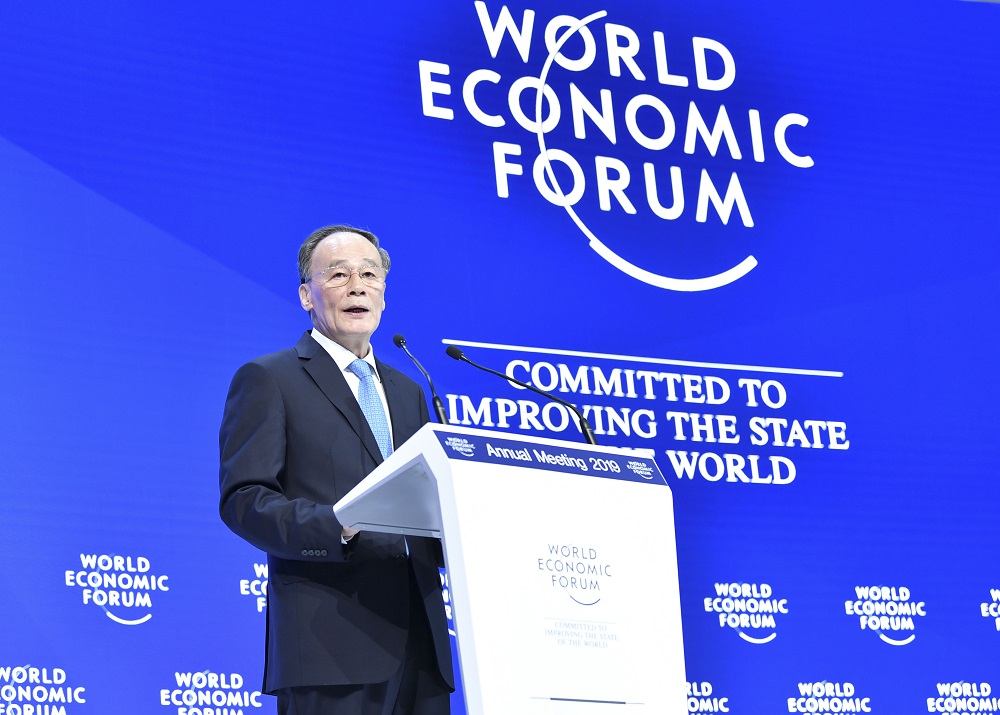
On January 23, 2019, Chinese Vice-President Wang Qishan delivered a speech at the 2019 World Economic Forum Annual Meeting in Davos.
Highlights of Wang's speech
-Questions about China can be answered from historical, cultural and philosophical perspectives
Wang said that many foreign friends have often put this question: What has made it possible for China to achieve so much in development and progress? And how will a stronger China engage the rest of the world? Well, these questions can be answered from historical, cultural and philosophical perspectives.
Given the close linkage between the past, the present and the future, one needs to learn about China's past in order to understand its present and forecast its future.
-On 70 years of China probing a way forward
Wang pointed out that we will stay true to the founding mission of the Communist Party of China seventy years ago, uphold its leadership and China's fundamental socialist political and economic systems and be guided by a people-centered development philosophy.
From the founding and building of the People's Republic to the launching of the reform and opening-up program and the shifting of focus to economic development, we have moved away from revolution to reform, from a planned economy to a market economy and from isolation to all-round opening-up. Four to five generations of us Chinese have, going through twists and turns, probed a way forward.
Through trials and errors, with many lessons learned and heavy prices paid along the way, we have made great accomplishments and embarked upon a path of building socialism with distinctive Chinese features, creating bright prospects for the great renewal of the Chinese nation.
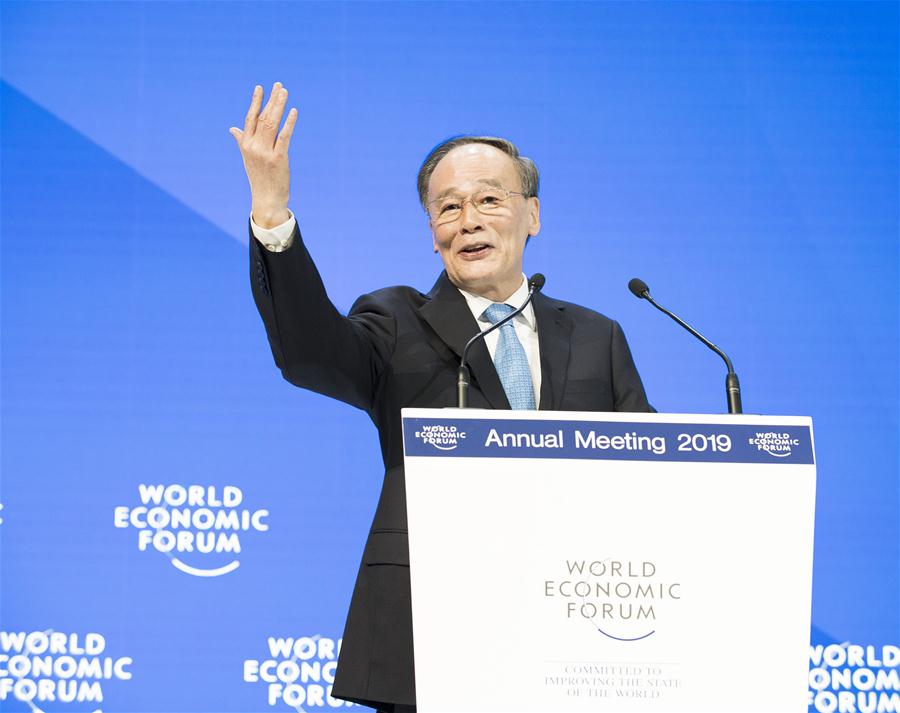
-Wang pointed out what the history has told us
The Chinese nation, long among the leading civilizations in the world history, has made unique and significant contribution to human progress. The profound historical and cultural heritage of the Chinese nation is in the genes of its people. What we long for is to see China once again gain its rightful place among the nations of the world and achieve great rejuvenation.
The Chinese nation is a peace-loving, open and inclusive nation that keeps abreast of the times. While keeping the fine Chinese culture alive and strong, we also respect other civilizations and values, and draw inspirations from other cultures. As we continue to follow the socialist path with distinctive Chinese features, we will respect other peoples' independent choices of paths and systems.
The Chinese culture values the teachings that one should help others to succeed while seeking one's own success, create a world for all, treat others with respect and pursue win-win cooperation. We reject the practices of the strong bullying the weak and self-claimed supremacy. While developing itself, China also wishes to work with all countries for common development and a community with a shared future for mankind.
The advances in China in the past 70 years are not a godsend, nor a gift from others. Rather, they are made by the Chinese people through vision, hard work, courage, reform and innovation. United as one, we Chinese can surely overcome various risks and challenges.
A land of 9.6 million square kilometers, a people of nearly 1.4 billion, and a history of over 5,000 years: These are the underlying features of China, and they are the source from which China derives confidence in its path, theory, system and culture. We have embarked on a right path that fits China's conditions and is in keeping with the trend of the times. And we will further improve and enrich socialism with distinctive Chinese features through reform and opening-up. This is a path we believe in, and we will steadily forge ahead along this path.
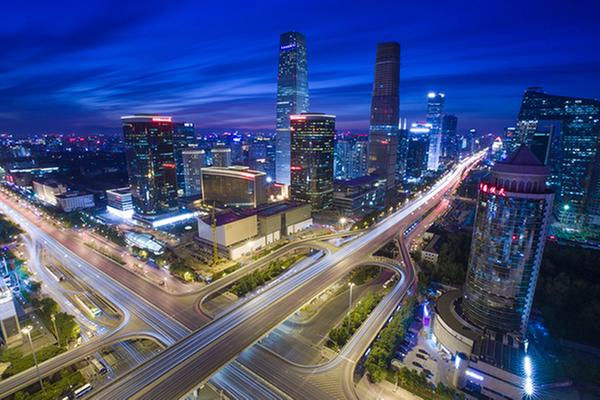
-On the process of economic globalization
Wang pointed out that the economic globalization, which gained rapid ground in the last century, was started by Western developed countries, or the Mediterranean civilization.
In the late 20th and early 21st centuries, technological advances have significantly reduced the geographical distance and other barriers to exchanges among countries and accelerated the economic globalization process. Emerging economies have risen. As a result, economic globalization has reached a new stage as we now know.
Western multinational corporations and financial institutions are the main drivers of economic globalization. As they seek maximum profit in their operations, they allocate resources to countries with low-cost production factors and sound business environment when building global industrial chains. In this process, China has moved up from the low end to the medium and high end of the global industrial chain. The nearly 1.4 billion Chinese who are enjoying greater prosperity have unleashed huge demand backed by purchasing power. And this has unlocked enormous market potential that no one can afford to ignore.
-Development imbalances need to be resolved through further development
Wang pointed out that we must take a targeted approach to address the problems that have emerged in the process of economic globalization.
Development imbalances need to be resolved through further development. Countries need to press ahead with structural reform, strike a right balance between equity and efficiency, adopt effective policy measures to prevent the worsening of income inequality and fend off the impact on some regions and industries caused by new technologies and market competition so that all people stand to gain from continued development.
What we need to do is make the pie bigger while looking for ways to share it in a more equitable way. The last thing we should do is to stop making the pie and just engage in a futile debate on how to divide it. Shifting blame for one's own problems onto others will not resolve the problems.
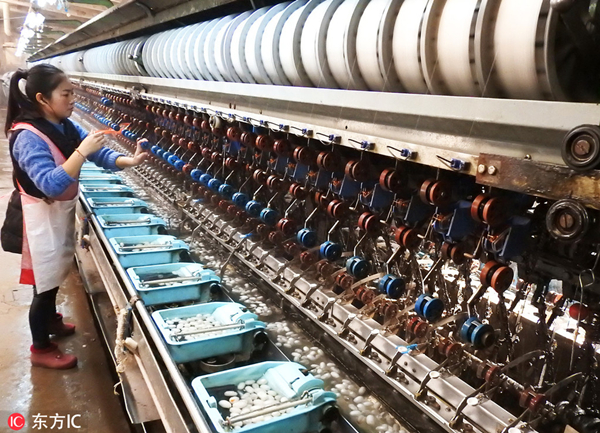
-Work together to shape the global architecture in the age of the fourth industrial revolution with the vision to create a better future for all mankind
Wang pointed out that new technologies bring opportunities, but they also create risks and challenges. We must work together to shape the global architecture in the age of the fourth industrial revolution with the vision to create a better future for all mankind.
We need to uphold the security of all mankind. We need to explore the adoption of relevant rules and standards in a phased way, while leaving broad space for the dissemination and application of scientific discovery and technological innovation. We need to accommodate in a balanced manner the interests of all countries, especially those of emerging markets and developing countries
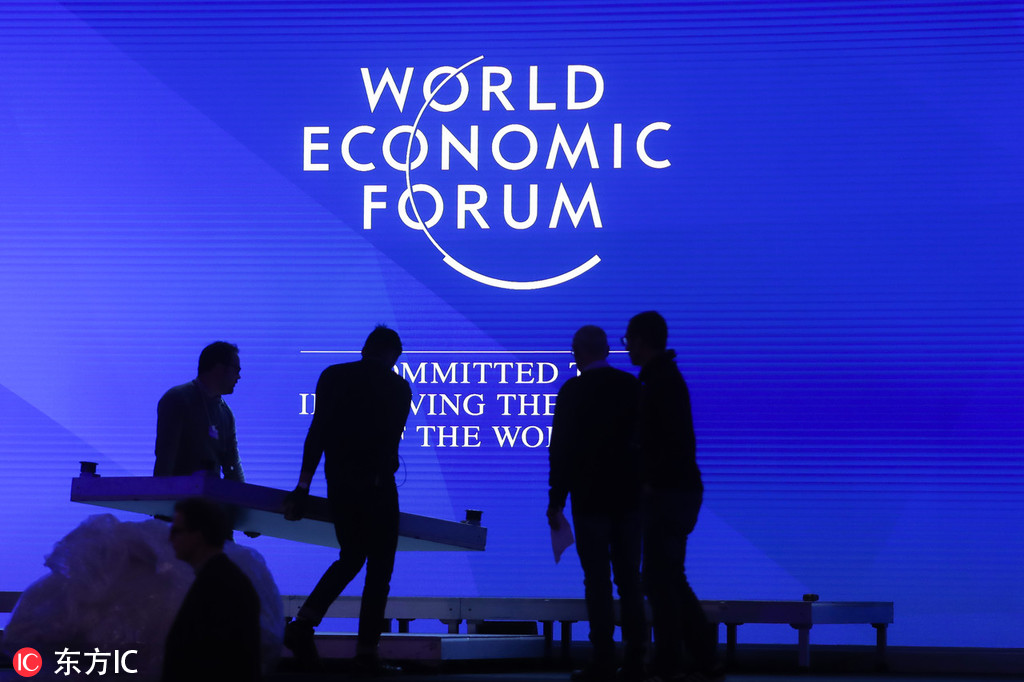
One should not ask the whole world to address only the security concern and comply only with the standards of developed countries or individual countries. It is imperative to respect national sovereignty and refrain from seeking technological hegemony, interfering in other countries' domestic affairs.
We need to uphold multilateralism and jointly build a system of rules for technology and new international cooperation framework featuring peace, security, democracy, transparency, inclusiveness and mutual benefit, so that all people can gain from technological innovation. We need to uphold social equity and justice, and ensure technological innovations are guided by us humans, meet our needs and be compatible with our values. We need to improve policy environment and promote social prosperity and stability.
If you have any problems with this article, please contact us at app@chinadaily.com.cn and we'll immediately get back to you.